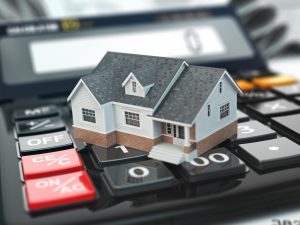Bank of Canada warns your house may be overvalued
December 25, 2014

Your house could be worth 30 per cent less than you think. That was Canada’s central bank warning.
Stephen Poloz, the Governor of the Bank of Canada, released the latest research in early December warning Canadians that their homes are overvalued by 10 to 30 per cent. We have had similar warnings before from the Bank of Canada as well as from other credible sources.
The warning is significant because according to the 2012 report by Environics Analytics, over three quarters of household wealth is tied up in real estate. A significant decline in house values would seriously hurt many households as well as the entire Canadian economy.
The question is how serious is this warning. Should we pay attention to it or ignore it and hope the Governor is wrong?
It is the Governor’s role to use the influence of the office to advise various segments of economy that affect the country at large. A watchful warning is prudent; otherwise, too stern a warning might trigger a rush with Canadians selling their houses.
The numbers suggest the risk of a decline in house prices is very real. Some would conclude the Governor’s warning was intentionally gentle so as not to cause a sharp decline in real estate values as people suddenly sell their houses.
A house is no different from any other purchase. There are advantages and disadvantages to purchasing a house. Like buying a car or taking a family vacation, there is a price you are willing to pay.
Up to the year 2000, Canadians paid about three times their annual income to buy a house. Suddenly the cost of a house is five times their annual income.
One argument supporting higher house values is that we have shifted our desire towards purchasing and continuing to own a house. More money is spent on housing and less is available to spend elsewhere.
If you own a house, townhouse or condominium you will have to assess the financial risk of your home being overvalued.
If you are financially comfortable then you are not at risk. It might not be a significant concern or hardship to you if the value of your house dropped by several hundreds of thousands of dollars.
You accept that risk because you enjoy living in your home and that is a natural consumer choice that might be right for you.
However, if you do not have extra funds there are two risks to consider. If you have a mortgage or a line of credit against the equity in your house what happens if interest rates increase?
We suggest you prepare a family budget for the next few years to determine what funds are coming into the household from income or other sources, and how much are you spending.
Now assume interest rates increase by two or three per cent and you re-do the budget. Do you have a cash flow risk if your house suddenly has higher financial carrying costs?
The second suggestion is to estimate how a decreased value of your house will affect your retirement. Have you assumed the equity in your house will be a source of cash flow to help with living costs after your employment income has stopped?
Personal finance is all about making financial decisions that are best for you. What are your priorities and how do you want to allocate your funds to support those priorities? The financial value of the family home has increased and for many it is the largest asset.
Managing the financial risk of home ownership for many should be the number one priority.
